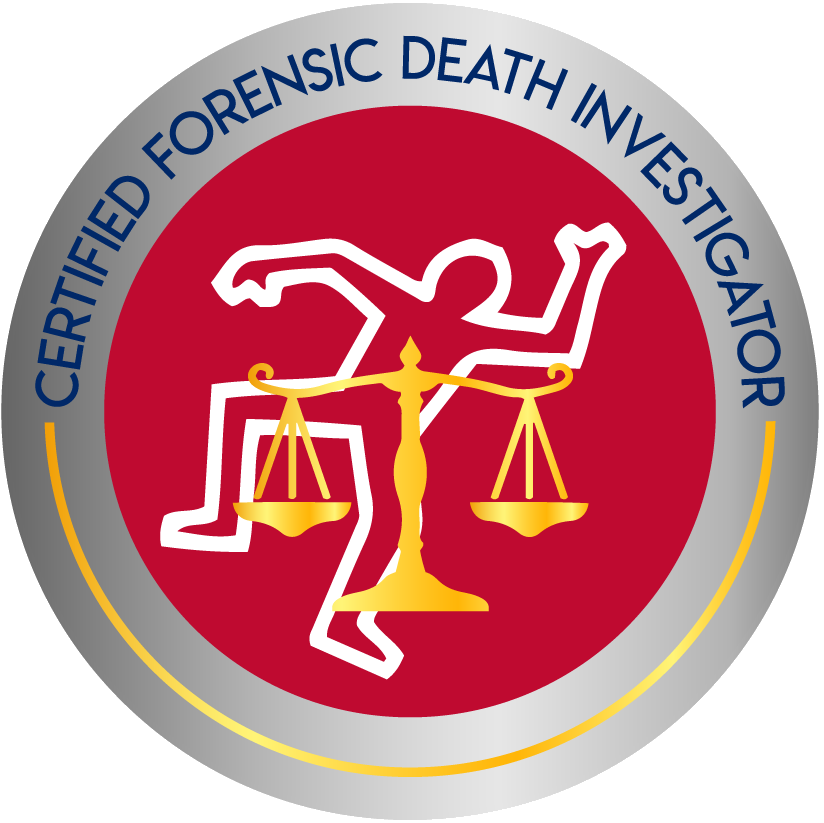
The process of investigation is vital to the rights of the individuals - both defendants and victims; in civil and criminal cases - and our justice system. In the investigations of death, it can have additional impacts – from civil and criminal, to insurance benefits and closure to families.
The evidence is not wrong. The interpretation, application of circumstances, and looking at evidence only individually instead of the totality of the evidence and circumstances can be wrong.
If the findings are wrong...
- someone may be wrongfully convicted; or
- someone may get away with a crime; or
- family may lose benefits; or
- family may be misinformed, lingering questions, and no closure.
It is not a matter of erring on the side of caution, it is a matter of the evidence and the story it tells and supports.
At times, answering the question of what scenario happened is unanswered. However, answering the question of what did or did not happen - was it homicide, suicide... or accident - is answered. In doing so, the answer of criminal charges, insurance benefits, or other outcome is.
“Not engage in incompetent practice or outside acceptable practices and standards of the industry.” - Private Investigator Licensing, Colorado Department of Regulatory Agencies (DORA) Standards of Practice.
We receive multiple inquiries on questioned deaths – from PIs, attorneys, and families. We welcome these, it is our passion to help families. Unfortunately with most, the PI has done a 'full work-up' of the case and an attorney is ready to file a wrongful death action based on the family's belief of homicide and then wants us to prove it. That's putting the cart before the horse.
First it needs to be determined what did and did not happen - was it suicide, accident, or homicide - we have found all of these in our questioned deaths. Most often there is some information and evidence – when looked at individually – which supports the questions and concerns of the family. If this is looked at with the untrained and inexperienced eyes, it may be an incorrect conclusion. We have found the same with law enforcement and coroner investigations – less frequently in comparison to families and inexperienced PIs. Once a family’s questions are said to be factual there is no changing course to them. We have been there and it is very damaging to them. For example, telling a family or client – at any time – “this is clearly a murder and we will prove it for you” does happen too often and should never be done. Instead, we tell the family, “We understand the concerns you have, but cannot offer anything further until we look at all of the records, reports, and photographs available to us. Even then, if they are incomplete our findings may also be. We will do the best we can to answer your questions honestly based on the facts and evidence. Please understand there are four possible findings, and we cannot know until your review concluded:
1) The official investigation was competent, with the official findings consistent with the facts and evidence; or
2) The official investigation was not competent, with the official findings consistent with the facts and evidence; or
3) The official investigation was competent, with the official findings not consistent with the facts and evidence; or
4) The official investigation was not competent, with the official findings not consistent with the facts and evidence.”
When retained by a PI or attorney, we tell them the same. These are in the order most often seen. The client comes to us – and you – because they are looking at #4. This is most often not our findings.
Why does this happen? Most often the family and PI are focused on the circumstantial drama – family relationships, personalities, unusual behavior, anger and grief. For example, we often hear of abuse and neglect or even affairs and acting strange. These may be valid concerns. Imagine if a person were arrested, charged, tried and convicted based on these circumstances? It has happened – a bit simplified, but it has and does. The damage and harm is to more than the defendant. Our only purposes is to review and analyze the facts and evidence independently and with no bias or desired outcome.
Then we can make recommendations to the family, PI and attorney as to the next stage of the investigation - the boots on the ground field work. It can be a big hardship on the family to have them convinced of homicide and the evidence doesn't support it - and they will live with the unanswered grief the rest of their lives. This hardship is financial and emotional. We have had families, attorneys, and PIs come to us with how much they have spent and are now ready for our expertise. This is often $2,000 to $10,000 (more than our base fee to families), only for us to tell them their findings or legal strategy are without fact and evidentiary basis. This has happened to such a degree, we now have law enforcement and prosecutor offices coming to us to independently review their cases as expert consults and to tell them which of the four possibilities their cases fall.
We strive to do the best we can for our clients, colleagues and profession. We are passionate about helping families. Our first recommendation for any investigation is to follow a simple process – from intake to investigation to conclusion:
- Prepare
- Inquire
- Analyze
- Document
- Report
(see the PI Magazine article – ‘A Look Into the Practical Methods for Legal Investigations’ at www.DeathCaseReview.com/uploads/8/7/3/8/8738199/beers_-_pmli_pi_mag_082014.pdf
Doing so provides for the Passionate Search for the Facts, and as legal investigators, this is our only true purpose. This includes extenuating, aggravating, mitigating, objective, and subjective information. Anything that supports or refutes any or all of the components of the death, or serious bodily injury, investigation is evidence. Legal investigators have professional obligations to themselves and all clients to be: 1) Informed, become informed, and to inform; 2) Unbiased and open minded; 3) Conscientious of their fiduciary responsibility; 4) Honest and ethical; and 5) Unrelenting in their search for the facts.


